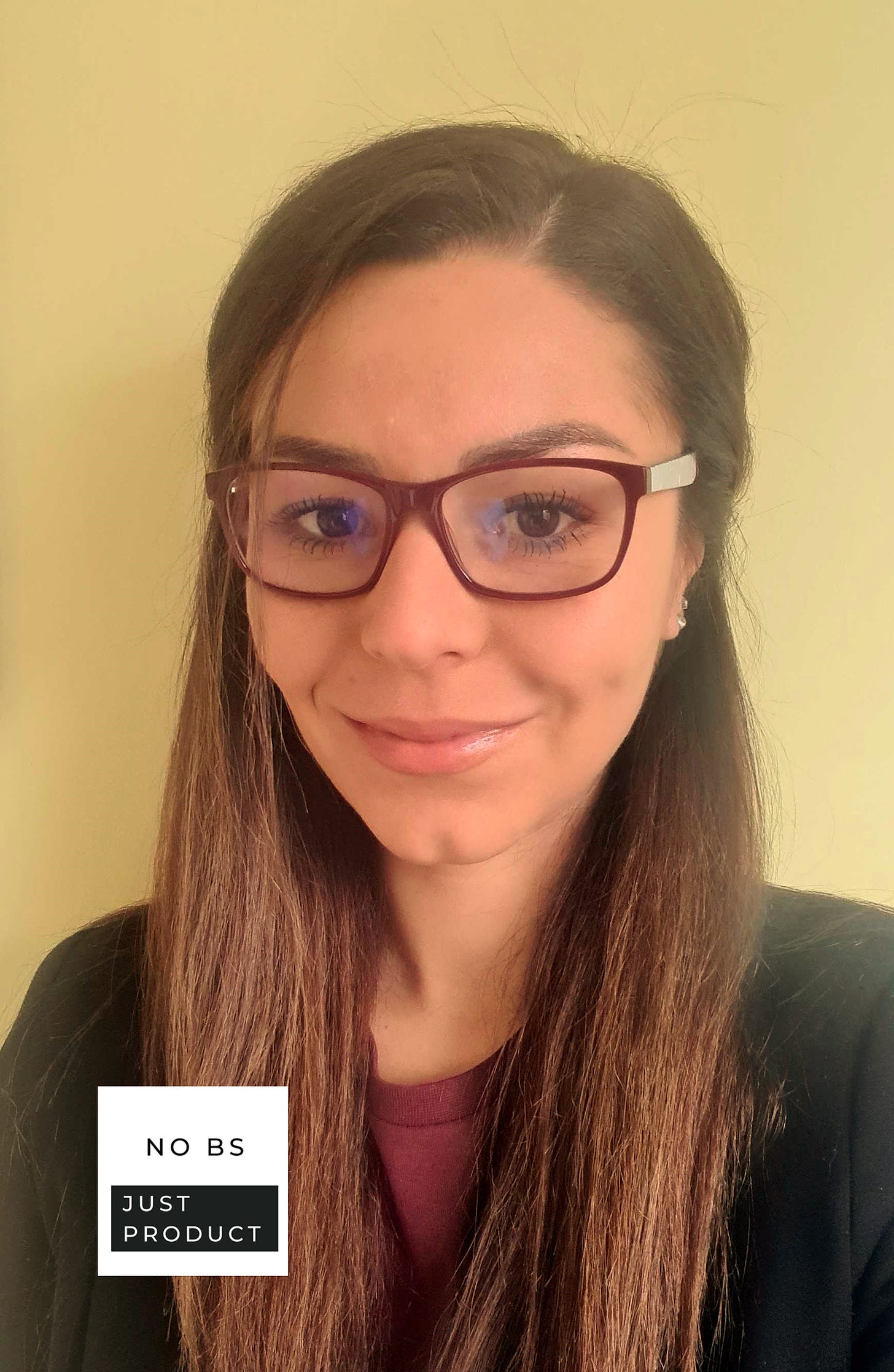Micro-Interview: Vasilena Mincheva, Product Manager | Ocado Technology
💬 "Being close to creating a new product from scratch attracted me to product management."
INTRO NOTE:
Vasilena Mincheva is a Product Manager at Ocado Technology, a global technology pioneer using AI, Robotics, Data Science, Cloud & more to disrupt the online grocery industry.
In under 500 words, she shares:
How she got into product management…
How she starts her mornings for maximum productivity…
Some of her sources of learning…
And more…
Enjoy!
“How did you get into product management?”
Before I joined Ocado Technology, I worked as a delivery manager for a UK-based start-up on a brand-new product. Being close to creating a new product from scratch attracted me to product management, including ideation, validation, and getting the proposition to product market fit.
“How do you start your mornings at work?”
When I arrive at the office, I review my daily goals and priorities. This helps me set clear intentions and ensures that I stay focused. I often write short preparation intros for my meetings around the three key messages I want to deliver.
“What do you know about product management now that you wish you’d known when you first started?”
Reflecting on my journey as a product manager, one of the most profound lessons I've learned is the importance of prioritizing the problem space over solving it too quickly.
Early in my career, I made the mistake of jumping straight into solution mode without fully understanding the underlying problems faced by our customers.
Also, I wish I had recognized the power of simplicity. It's tempting to add more to a product to make it more appealing. However, I've learned that simplicity is the ultimate sophistication by stripping away complexity and focusing on what truly matters.
“What did your biggest product failure teach you?”
My biggest product failure has taught me the invaluable lesson of the necessity of thorough problem validation, active customer engagement, and a willingness to adapt and iterate based on feedback.
It's essential to recognize when things aren't working as expected and be willing to pivot or course-correct as needed.
Failure is an inevitable part of the product development process, but how we respond to and learn from failure ultimately determines our success.
“What’s the #1 thing that has helped you shorten your product management learning curve?”
Practicing asking the right questions with just enough prospects and actual clients is paramount to remaining attached to the problem you are trying to solve and validating all the orbiting assumptions you might have.
A book that helped me with that is The Mom Test by Rob Fitzpatrick.
“How do you stay updated on the best practices in product management?”
In short, I stay informed about the latest developments in product management through networking, engaging with peers (I’m part of several open Slack channels outside of my organization), industry conferences and workshops, and reading blogs, books, and research reports.
The last book I read was - Don't Make Me Think by Steve Krug.



